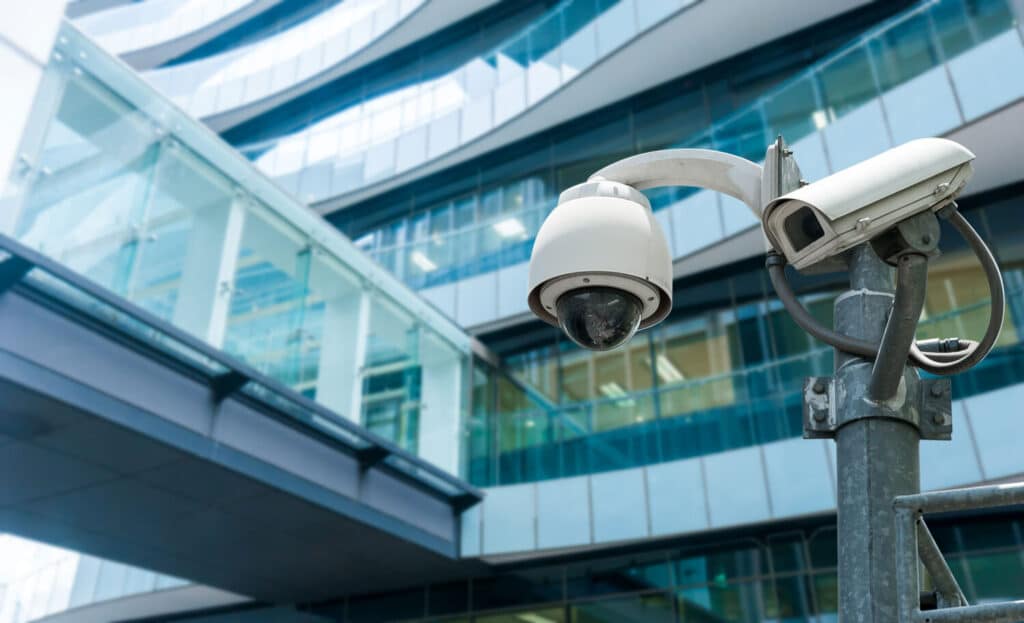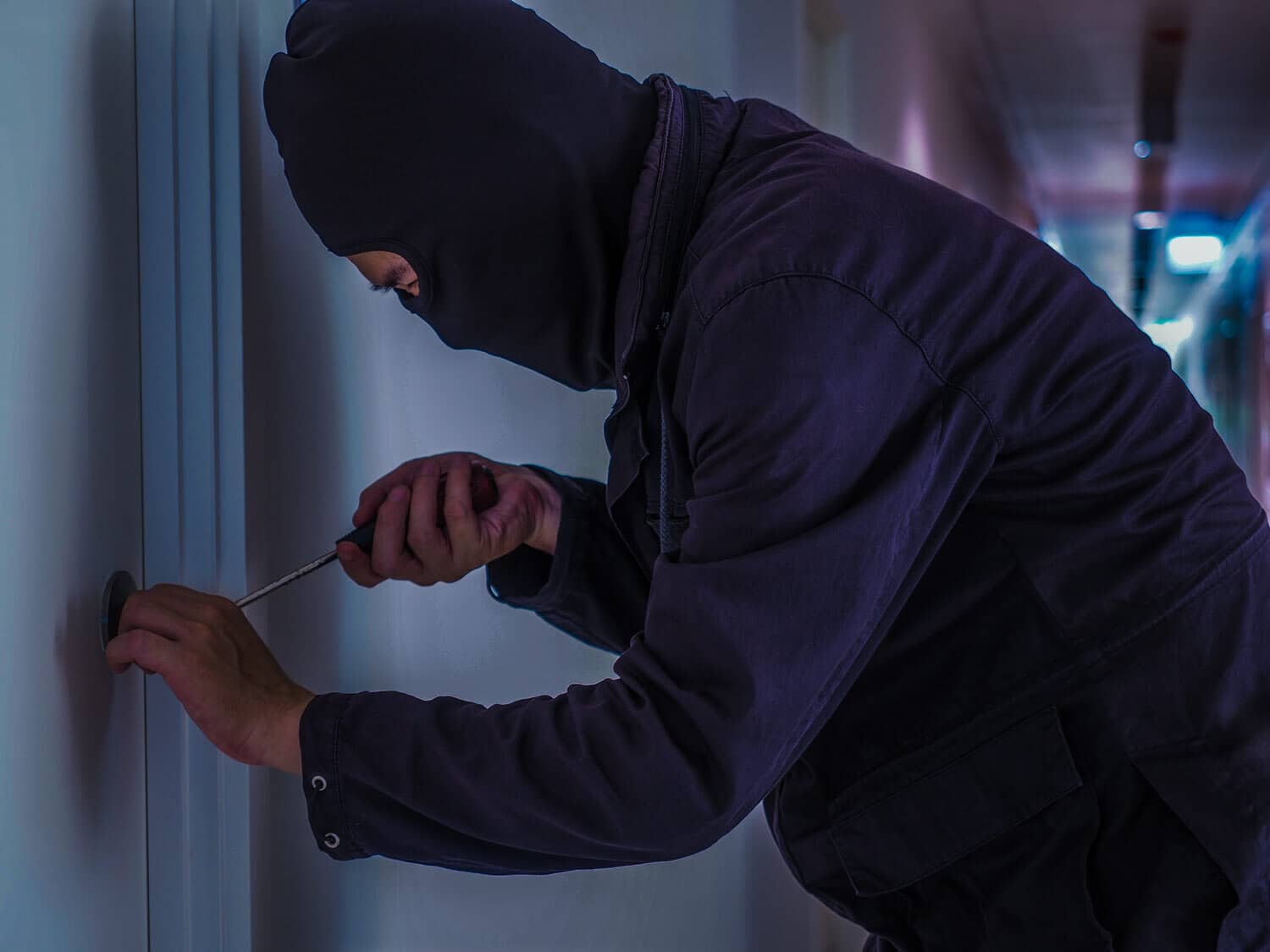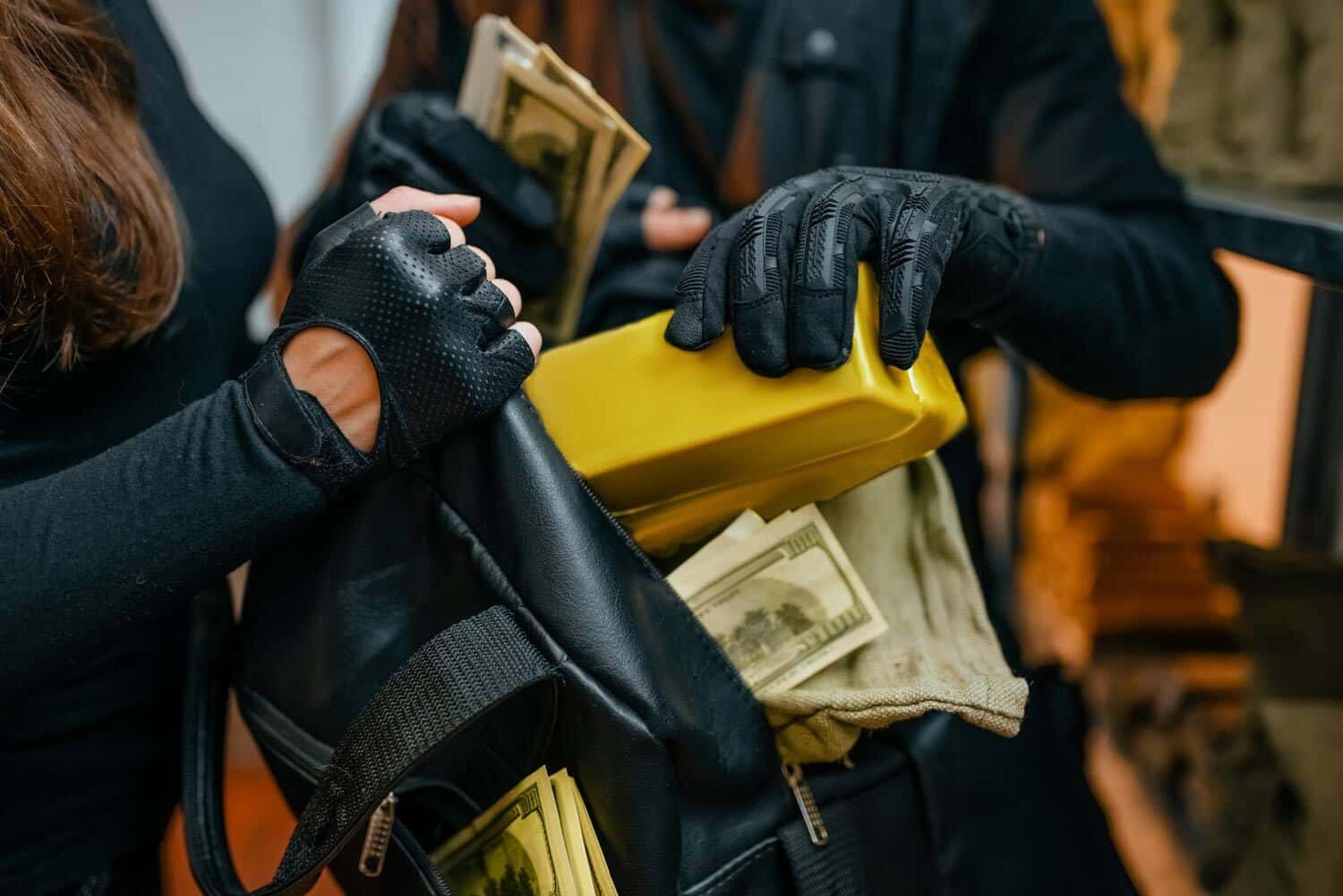The good news is that violent crime is down. The bad news is that property crime is much more common — however, despite what you hear on the news, it is also lessening over time.
No matter the national numbers, protecting assets, employees, and sensitive information has become increasingly complex, especially as criminals evolve their tactics.
Understanding the most common crimes businesses must defend against is the first step in developing robust security measures. Let’s explore the most common crimes, provide insights into why criminals target these businesses and offer solutions to minimize the risk of falling victim to these threats.
So, let’s answer the question: What is the most common crime for businesses to protect themselves against?
Burglary and Theft
A break-in occurs every 26 seconds in the United States, making burglary and theft one of the most common crimes businesses face. Whether it’s a break-in after hours or internal theft by employees, companies of all sizes are vulnerable. Burglars target physical assets such as cash, equipment, and merchandise, which can result in significant financial losses. According to the National Crime Victimization Survey, burglary rates for businesses are higher than for residential properties, making it crucial to secure their premises properly.
Businesses that deal in valuable commodities, such as retail stores and warehouses, are prime targets. Thieves look for vulnerabilities, such as weak locks, outdated alarm systems, or poorly lit areas, making it easier to break in without detection. Additionally, internal theft by employees is a growing concern, with employees exploiting access to sensitive areas or valuable items. According to one source, 75% of employees admit to stealing from their employers at least once during their tenure.
Vandalism
Vandalism costs property owners around $15 billion a year, and it’s a far too common crime for businesses. Graffiti, property damage, and destruction of business assets can negatively impact a company’s reputation and lead to costly repairs. Vandalism is not only an economic loss, but it can also deter potential customers and clients if the premises appear unsafe or neglected.
Businesses in urban or higher-crime regions are especially susceptible to vandalism. Security cameras, proper lighting, and routine monitoring can help deter vandals from targeting business properties.
Shoplifting
Shoplifting remains a persistent issue for retail businesses. Whether committed by individuals or organized retail crime (ORC) groups, shoplifting can result in major financial losses. Organized retail crime has become a significant problem, with professional theft rings targeting large retailers and selling stolen goods on the black market. According to the National Retail Federation, ORC is responsible for billions in losses annually.
Businesses without adequate security measures, such as video surveillance or anti-theft devices, are at greater risk. Investing in retail security cameras to monitor shoppers and implementing anti-theft policies can help reduce shoplifting incidents.
Fraud
Fraud comes in many forms and affects businesses across industries. Common types of fraud include financial fraud, identity theft, and scams such as credit card or check fraud. Criminals may also use fraudulent means to manipulate business data, causing financial damage or even leading to legal consequences. For example, fraudulent customers with “trip and fall” scams can target brick and mortar storefronts for a lawsuit.
Businesses involved in financial transactions, such as retail stores or e-commerce, are particularly vulnerable to fraud. Robust financial systems with monitoring and auditing tools, employee vetting, and fraud detection technologies can help reduce exposure to fraudulent activity. Also, any business where customers frequent on-site locations should have video surveillance tools to protect them — and customers — from any illegal or fraudulent activity.
Employee Embezzlement
While businesses tend to focus on external threats, internal threats are just as significant. Employee embezzlement occurs when employees misuse their position of trust to steal money or assets from the company. This crime often goes undetected for long periods, especially if a single employee controls financial accounts or inventory. However, it costs employers around $50 billion a year.
Establishing proper checks and balances, regularly auditing financial records, and implementing clear reporting structures can help mitigate the risk of embezzlement. This effort is particularly important for small businesses, where fewer employees may be involved in managing finances, increasing the potential for fraud or other mismanagement.
Robbery
Robbery differs from burglary in that it involves the use of force or intimidation to steal from a business. Businesses that handle large sums of cash, such as liquor stores, convenience stores, or jewelry shops, are often targeted. Armed robbers may threaten employees and customers to gain access to cash registers or safes. These types of businesses typically have three things in common:
- Cash on hand
- Valuable goods attractive to a criminal
- Low security
Installing visible security measures, such as video surveillance, alarms, and panic buttons, can deter potential robbers. Training employees how to respond during a robbery can also reduce the risk of injury and loss.
Trespassing
Trespassing may seem like a minor crime compared to the others on this list, but it can lead to more serious issues. Trespassers on business property may damage assets, steal items, or put themselves at risk of injury, which can result in lawsuits against the business.
Having well-defined property boundaries, fencing, and proper signage can deter trespassing. Surveillance cameras and alarm systems also help stop unauthorized individuals entering the property.
Pro-Vigil Stops Crime with Video Surveillance
Pro-Vigil stops crime with its advanced video surveillance solutions, providing businesses with real-time monitoring and proactive deterrents. With features like intelligent video analytics, remote monitoring, and instant alerts, Pro-Vigil helps prevent crimes before they occur by identifying suspicious activity and alerting security teams or law enforcement. These solutions protect your assets, reduce vulnerabilities, and ensure businesses remain secure 24/7. By integrating cutting-edge technology with expert monitoring services, Pro-Vigil delivers peace of mind to business owners looking to safeguard their property from the most common crimes.
Talk to us about how to protect your business now and in the future.
Q&
Several factors can make a business vulnerable to crime. Poor physical security, such as outdated alarm systems, inadequate lighting, and a lack of surveillance cameras, invites criminals to target a business. Additionally, businesses that handle high-value commodities or large amounts of cash are more likely to attract criminals.
The top thing businesses can do to protect themselves from crime is to implement a comprehensive security strategy. This strategy should include physical and digital safeguards, such as surveillance cameras, alarm systems, cybersecurity software, and access controls. Training employees to recognize and respond to threats is also vital, whether it's preventing shoplifting or defending against cyberattacks. Regular audits and assessments of security systems ensure they remain effective while addressing any vulnerabilities as they arise. Proactive measures, rather than reactive solutions, offer the best defense against the growing array of criminal threats businesses face today.










